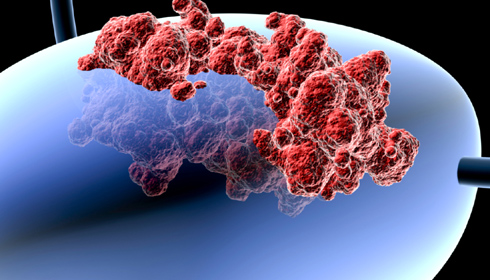
Simple Urine Test Cuts Bladder Cancer Follow-Up Procedures in Half
European Association of Urology Congress witnessed groundbreaking research presenting a viable alternative to cystoscopies.
In a groundbreaking study presented recently at the European Association of Urology Congress in Paris reveals that a simple urine test could revolutionize the follow-up procedures for high-risk bladder cancer patients. The study, conducted in Denmark, indicates that this test could significantly reduce the need for painful and invasive cystoscopies.
Cystoscopies, which involve inserting a probe into the bladder through the urethra, are currently a standard method for monitoring bladder cancer recurrence. However, they come with risks such as urinary infections, bleeding, and discomfort. Moreover, the frequency of cystoscopies adds a considerable burden to patients, with some undergoing the procedure every three to four months for up to two years post-surgery.
The two-year study, led by researchers from Aarhus University Hospital, enrolled 313 high-risk bladder cancer patients, half of whom underwent the standard follow-up regimen of three cystoscopies per year, while the other half received only one cystoscopy per year. In place of the remaining two cystoscopies, patients in the latter group were administered the Xpert® Bladder Cancer Monitor test, a urine biomarker test designed to detect cancer recurrence by measuring specific genetic markers.
Remarkably, the results revealed that patients primarily undergoing the urine test required cystoscopies in only 44% of their follow-up appointments, compared to nearly 100% for those on standard treatment. Furthermore, the urine test demonstrated its efficacy in detecting cancer recurrence even before it became visible through cystoscopy.
Thomas Dreyer, the lead researcher, expressed confidence in the sensitivity of the urine biomarker test, stating, "Our findings show that [the urine test] wasn’t the case" in terms of generating false positives and necessitating additional cystoscopies.
The implications of this study extend beyond patient comfort. Joost Boormans, Professor of Urology at Erasmus University Medical Centre in Rotterdam, emphasised the potential impact on healthcare resources, particularly in light of the increasing prevalence of bladder cancer among the elderly population.
Professor Boormans underscored the urgency of integrating the urine test into clinical practice if subsequent results confirm its effectiveness in detecting cancer recurrence. Doing so could alleviate the strain on healthcare resources and improve accessibility to care for bladder cancer patients.
The results of this study provide optimism for a less invasive and more effective method of monitoring bladder cancer, representing a significant advancement in urological research and patient treatment.